MLK Day soul music anthologies from Freddie Scott, Johnny Adams, more
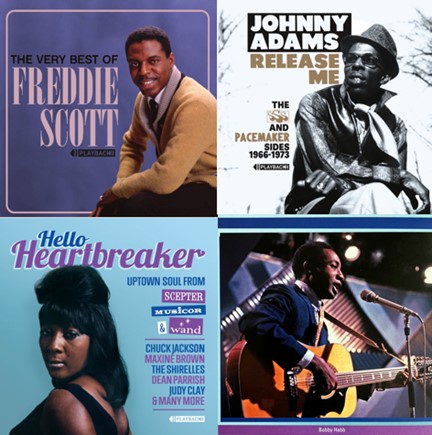
MLK graffiti photo, page 16 of ‘The Very Best of Freddie Scott’ Playback CD booklet
When Dr. Martin Luther King Jr. delivered his historic “I Have a Dream” speech in 1963, Freddie Scott’s “Hey Girl” was in the Top 40. If there was one colorblind place in America in the 1960s, it was Top 40 radio, which led to jukeboxes and singles sections of record departments and record stores stocking a racial mix of music including a genre newly labeled as soul. In 1968, the year of Dr. King’s assassination, Johnny Adams had his Top 100 pop debut with “Release Me.” Now, Australia’s Playback Records has released a pair of anthology CDs of Scott and Adams’ work, with top-notch sound quality, versus what is available on YouTube links, and extensive CD booklets with information, quotes, and photos. Goldmine has featured Playback’s compilations of songs by Skeeter Davis, songwriters Barry Mann and Cynthia Weil, and Bee Gees covers in recent years, and now we share Playback’s Freddie Scott and Johnny Adams CDs plus a compilation entitled Hello Heartbreaker.
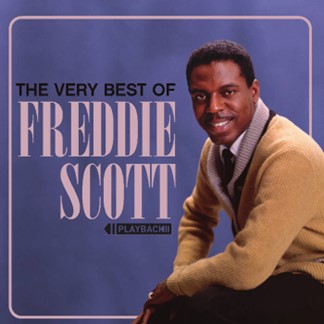
Freddie Scott debuted in the pop Top 100 in 1963 with the Gerry Goffin and Carole King composition “Hey Girl.” In the CD booklet, David Cole provides the story of Freddie Scott, who passed away in 2007. In a 2003 interview, Scott said, “Gerry Goffin and Carole King’s ‘Hey Girl’ was really planned for Chuck Jackson but for some reason it didn’t work out with Chuck and his people. So, Don Kirshner and I reached out to Carole and Phil Spector. The first time I heard that song I thought it was a little bit country. We were working in her house. Sometimes we’d work in the office, sometimes in her house, with her and Gerry, and we worked on it for a couple of months. After we got it perfected, it laid on the shelf for almost a year until Phil came in and said to Don, ‘You’ve got to put this record out. It will be a hit.’” Supplementing Scott’s rich vocals were the female R&B trio The Cookies, who had Top 40 hits with Goffin and King’s compositions “Chains” and “Don’t Say Nothin’ Bad (About My Baby),” providing key vocal parts on “Hey Girl,” which reached No. 10.
The year that Scott was recording “Hey Girl,” Solomon Burke had a Top 10 R&B hit with “Cry to Me,” which was later featured in the 1987 Dirty Dancing film and soundtrack. Scott’s 1967 cover of “Cry to Me” was slower, but still danceable. Scott was working with the producer, writer, and Shout Records owner Bert Berns at the time. Scott said, “Bert and I were very close, and we would share ideas. We’d sit in a room and work all night. We sat, going through different songs and he started playing Solomon Burke’s version. It was one of the catalog songs we had. I said, ‘I’d like to do the song but I’m not going to do it like that.’ So, we started working on it.”
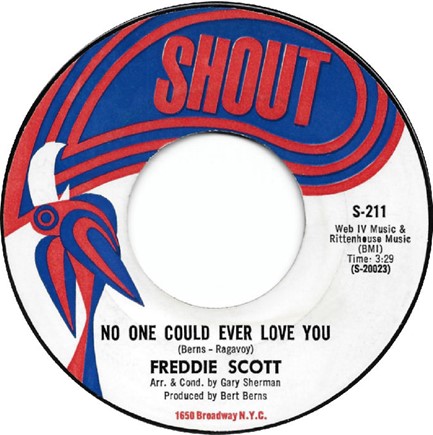
Freddie Scott
Fabulous Flip Side: No One Could Ever Love You
A side: Cry to Me
Billboard Hot 100 debut: March 25, 1967
Peak position: No. 70 (R&B No. 40)
Shout S-211
The flip side of “Cry to Me” was “No One Could Ever Love You,” in 3/4 time, Scott sang, “No one could ever love you more than I do” echoed with female vocals and augmented by strong brass.
Other standouts on The Very Best of Freddie Scott include the powerful “Mr. Heartache” from 1964 and “(You) Got What I Need” from 1968, with a delivery on par with Jerry Butler’s late 1960s recordings.
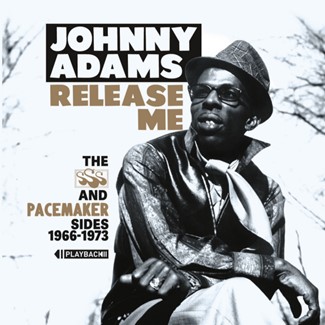
Johnny Adams debuted in the pop Top 100 with his version of “Release Me” in 1968, a year after Engelbert Humperdinck brought his version of the song to the Top 5. The following year, Adams had his pop Top 40 debut with “Reconsider Me” on Shelby Singleton’s SSS International Records, the label who gave us Peggy Scott & Jo Jo Benson’s late 1960s edgy Top 40 duets “Lover’s Holiday,” “Pickin’ Wild Mountain Berries,” and “Soulshake.”
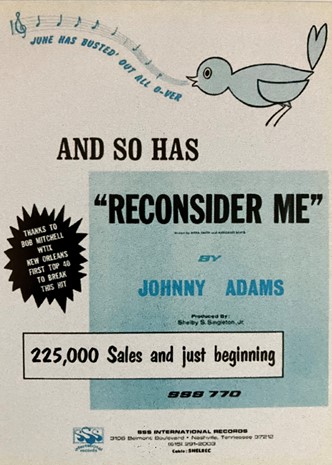
From the back inside CD panel of Johnny Adams’ ‘Release Me’ Playback CD
“Reconsider Me” was written by Margaret Lewis and Myra Smith. The new CD booklet was written by Jeff Hannusch, sharing the life of Johnny Adams, who passed away in 1998. Adams said, “We had a beautiful thing going then. SSS International really made sure everybody did a good job. All I had to do was go in the studio and sing. They had some great writers in Nashville, like Margaret Lewis and Myra Smith. It was fun being in the studio in those days.”
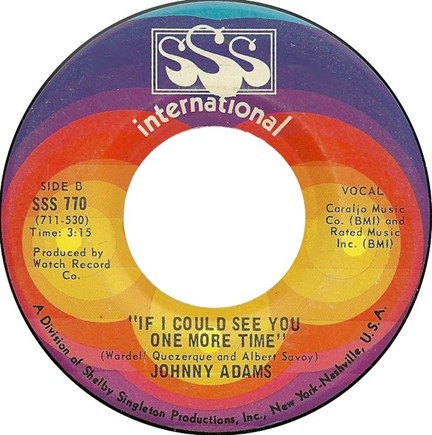
Johnny Adams
Fabulous Flip Side: If I Could See You One More Time
A side: Reconsider Me
Billboard Hot 100 debut: June 28, 1969
Peak position: No. 28 (R&B No. 8)
SSS International SSS 770
“Reconsider Me” was given a second life in the following decade on the country chart with Narvel Felts taking the Lewis and Smith composition to No. 2 in 1975, making it his biggest hit. The flip side of the original Johnny Adams recording of “Reconsider Me” was “If I Could See You One More Time,” opening with a church organ sound and Adams pleading to understand why his girl left him and promising to do better if he could just see her one more time.
Brass, guitar, and drums propel the confident “You Made a New Man Out of Me,” with a thankful Adams singing, “You came along in the nick of time.”
Other standouts on Johnny Adams’ Release Me include the back-to-back tracks “Let Them Talk” and “Sometimes a Man Will Shed a Tear.” Adams’ amazing high vocal notes that end “Let Them Talk” go even higher at the beginning of “Sometimes a Man Will Shed a Tear.” Regardless that the first song was from 1967 and the second song was from 1966, altering the chronology for the musical flow was the right decision.
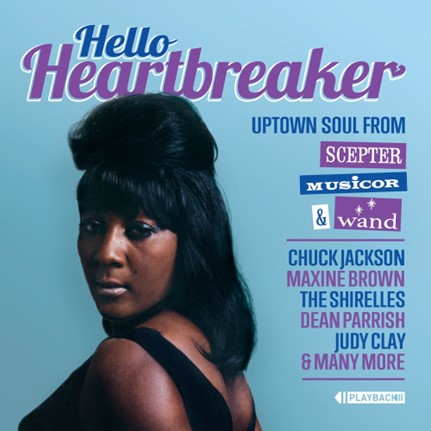
Hello Heartbreaker includes 28 different artists with lesser-known gems compiled by Playback’s Nathan Impiombato, with stories on each of the songs, music credits, and many photos. He states, “After the success of Bobby Hebb’s ‘Sunny’ on the Phillips label, Broadway agent Bud Granoff seized the opportunity to capitalize on the master recordings pre-‘Sunny’ for new commercial potential, shopping them around to various labels. ‘I Love Mary’ was picked up by Scepter.” “I Love Mary” is a simple title but a longer title would have given away the story as Bobby Hebb sang, “I love Mary, but I love Agnes too.” While Hebb was trying to be truthful in his composition, telling both women of his love for them, it backfired when Mary and Agnes were walking together, snubbing him, and leaving him with neither girl.
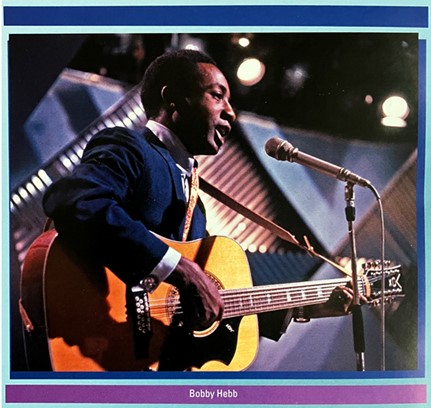
‘Hello Heartbreaker’ CD booklet, page 20
A year after Maxine Brown left the Top 40 for a third and final time with Gerry Goffin and Carole King’s “On No Not My Baby” on the Wand label, “I Don’t Need Anything” was released on Scepter. The composition, written by Lee Pockriss and Paul Vance, was given a dramatic delivery by Brown declaring, “I don’t need anything, anyone, as long as I have you” with a piano sound heard on fellow Scepter labelmate Dionne Warwick’s records.
A few years after The Toys’ gold single “A Lover’s Concerto,” adapted from a Bach minuet, the Queens trio continued to record and release records, but none could match the No. 2 success of their big hit. Some of their work was unreleased for decades, including the wonderfully orchestrated “Try to Get You Out of My Heart,” with a more mature vocal sound and edgy harmonies in line with the sound of Patti LaBelle and her Blue Belles in the 1960s and Labelle in the 1970s.
Other standouts on Hello Heartbreak include Lenny Miles’ baritone vocal on “In Between Tears,” which reached No. 84 in 1961, and The Chancellors’ “Sad Avenue” with members later joining The Temptations and The Drifters.
Related Information and Links:
Goldmine’s John Borack has written the CD booklet for Playback Record’s new release of 1980s female led Los Angeles group Little Girls’ Valley Songs.
Goldmine Playback Records – Skeeter Davis and Songs of Barry Mann and Cynthia Weil
Goldmine Playback Records – Words: A Bee Gees Songbook
Fabulous Flip Sides is in its nineth year
goldminemag.com/columns/fabulous-flip-sides
For related items that you may enjoy in our Goldmine store (see below):
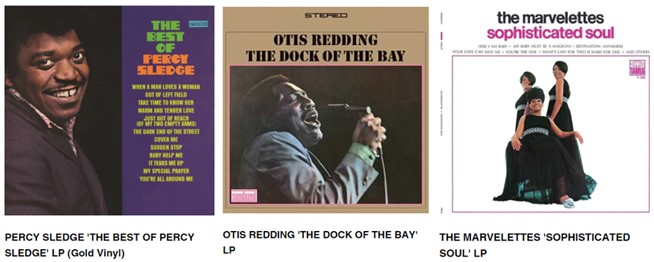
Click here for 1960s vinyl soul and more at the Goldmine store
Source link

